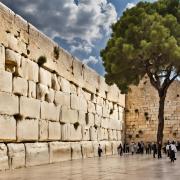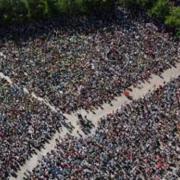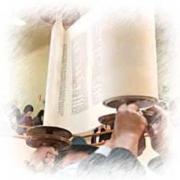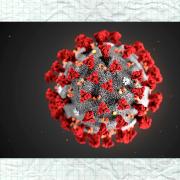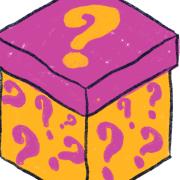The Loving G-d
Did you ever hear this expression that G-d loves you, He is all love and it's all love? But is it? When you open Torah books and start flipping through the pages, all you see is the opposite. He seems to be vengeful, and very just, with lots of stories of people being punished for the things they have done wrong. And then we go to shul, we observe the following: people talking, laughing at jokes, sometimes even laughing at others, talking about others, you may even hear arguments and maybe even shouts, and of course, you will see people praying. But don't stop there, keep on observing, and you will see kids of all ages...some walking around, some seating, some reading books, and some praying.
While there in shul you hear of some kid or a member that no longer comes to shul, or some grew up and moved to a different neighborhood where there is no shul nearby, and we say, Oy! He had such great potential...and, we even got a fancy label for these types of people - Off The Derech.
But what is this thing called derech or a road? Is it the physical road we walk on daily, back and forth for years to and from the shul, or is it something bigger - like an accepted Way of Life or even a Way of Behavior?! So, these people get off this "accepted way of behavior" by society... but let me ask you a question, are we truly on that "accepted way of behavior"?
Torah tells us a story of Amalek in Devarim 25:17-19, and it goes like this, the Jewish nation came out of Egypt and a people of Amalek came and attacked the Jewish nation while attacking those that were as Torah calls them כל הנחשלים אחריך - Hanecheshalim, Rashi explains those that were weak ones, in Midrash Tanchuma it says that those that were expelled from the protection of the Clouds of Glory due to their sins and were walking behind the camp... So Amalek attacked those that were walking outside of the camp, out of the protection of the Clouds of Glory, so by attacking them, they have instilled doubt into the hearts of the other nations - which means that all the miracles that Hashem has done when He took the Jewish nation out from Egypt which has made the Jewish nation look powerful in the eyes of other nations - after the war has made them look like nothing, and that the Jewish nation is not untouchable, and you can fight it as well. Amalek did it just to prove this point, even though they lost the war, they were able to achieve their agenda. So, G-d gave us a commandment to kill the nation of the Amalek, and G-d said He will not rest till the end of days until He brings vengeance on this nation.
For centuries rabbis tried to figure out who this nation of Amalek is, and in every generation, we see the few that try to annihilate the Jewish nation, and every time G-d saves us from their hands.
But there's also another explanation given by our Sages. That there's an Amalek inside each one of us, and he overtakes us and influences our behavior. Let's go a bit deeper into this idea.
It is no coincidence that Torah has used the word, chalashim - the weak - they have attacked the weak, maybe Torah is giving us a hint, since we also got the weak ones in our society, and these are the kids, people with little to no emunah, those that have come to Judaism recently, and the ones that are not firmly established in the Torah society.
For kids - with their undeveloped and naïve minds, besides playing and praying, they seat and observe, and watch us, our behavior, our interaction with others, and most importantly our service to G-d.
Those that have returned to Hashem, and have accepted the kingship of Heaven upon themselves, still struggling day to day with belief in G-d and details overall, come to shul, join the minyan, and also look around at those "established ones", and ones that have been "in it" for years… The same goes for the ones that are not established in the Torah society.
And we that have been “in it” for years, through our inappropriate conduct in shul, without realizing, packing and stuffing the hearts of these children and people that have returned to Hashem - stuffing their hearts with doubts - doubt of Hashem's might and mercy, His Torah, and a way of Torah life.
Suddenly we hear of someone that moved to another neighborhood away from shul, someone who walked out of the shul never to return, and slowly they fall out one by one...
Maybe and just maybe, the Amalek is not some other nation, but it is us - our inappropriate behavior, and our urge to crush others around us in the community - just to inflate our worth in public. Our way of mistreating and spreading rumors about others, and feeling great doing it before, and after the fact and all the time, openly or secretly - this behavior places doubt of G-d, His justice and His involvement in our daily lives. Doubt that goes straight into the hearts of these kids and people - daily for years - as being a normal behavior in shul and in life.
Then the speech told by the rabbi from the podium is not taken seriously, since it feels like a story, cause these kids and people have already seen from their observation that you can do it all, and be ok with G-d and others...since look - everyone is doing it. And their fathers seeing their kids not wanting to pray, or come to shul, scratch their heads, thinking where did they go wrong?
So these baaley teshuvah and these kids grow up in life, and their doubts grow with them to the point where doubts become convictions, or even total disbelief in G-d, since their views were already altered from their childhood days, or the early days of praying with the minyan. Worst yet, when some of these kids grow up, finish yeshivot, have a beard and a hat, and pray daily in minyan while behaving with total disregard to G-d and hallacha.
But there's more...
A similar scenario we see played out in the Parashat Vayeshev, the incident with the brothers and Yosef of 17 years old. The Torah describes Yosef as vehu na'ar (he was young) - it is not a coincidence that Torah mentions that he was young, but to bring exactly the point I was making above - he was young, naïve, and the weakest among his brothers. His naivety was shown when he saw his brothers do something that he thought was not right, he went and told his father while interpreting it the way he understood it. Worst yet, fully knowing that his brothers hated him, he told them about the dreams that he had, which made them hate him even more.
But, what happens next? They sell him to Egypt. Years later when the brothers are arguing with Yosef who was a viceroy of Egypt at that moment, Yosef told them - Ani Yosef - I am Yosef, and then he added something that kind of doesn't make sense - Haod Avi Chai - Is my father still alive? Yosef, of course, he is alive, you know it since you already heard it many times over the discussions you have had with your brothers, how can you forget it?
But, there must be a reason why Yosef asked them this question....
There are many explanations for this pasuk, but with your permission, I would like to give one as well.
During all this time, the brothers have been trying to get their brother Benyamin out and leave Egypt. Yosef hinted to them many times when he thought they would recognize their "enemy" that is in front of them, who was their flesh and blood - brother Yosef, but the brothers didn't recognize him. So, when he said, Is my father still alive, he was trying to say the following:
My dear brothers, you saw me a few times already, and we ate together, and we have been arguing, and talking, and during all this time, you did not recognize me - because I look different. But I am your brother. But do you know why I look different? Because of you. You have mistreated me in the house of my father, and then you have sold me to Egypt. I have been torn away from my father, from the security of my father's house, and thrown to a far and unknown land. Here I went through many troubles and tribulations. And look at me - you didn’t recognize me, I look different than you. You look like Hebrews, and I look like an Egyptian, and so do my sons. So, when I was with my father, my father knew me, but now since I look so different, like an Egyptian - will my father accept me, will he consider me as part of the family - as his son?
When Yakov Avinu saw Yosef HaTzadik for the first time, our Sages say that he was praying the prayer of Shema Yisrael, because here Hashem has introduced him to the first Off The Derech individual or someone who looked totally different, as it was accustomed in the house of Yaakov Avinu. But this also meant, that since Yaakov Avinu and his whole family were coming down into exile – there will be many more of these types of individuals. And at that moment Yaakov Avinu was praying for all the people that will fall out from the accepted derech for all the generations starting from Yosef HaTzaddik until Mashiach times. Later Yaakov Avinu not only accepted Yosef HaTzadik as his son, but he also accepted his children and raised them to the level of the shevatim.
But who paid for the sin of selling Yosef to Egypt? The Holy Books tell us that Turnusrufus, a Roman official summoned Rabbi Shimon Ben Gamliel and his colleagues and presented a question before them:
What is the law with regards to he who kidnaps a man from the Jewish nation and sells him [into slavery]?” The rabbis replied that Torah mandates that such a man be put to death. “If so,” continued Turnusrufus, “where are your forbearers who sold their brother into slavery? Had they been here, I would have prosecuted them before your eyes. As for you, accept the decree of heaven, for since the times [of the 12 tribes] there have never been 10 sages of your stature [alive at one time]. Take upon yourself to die in accordance with your law; for Joseph, the son of Jacob was kidnapped and sold by his 10 brothers, and their punishment has never been exacted.”
And so it was - ten of the biggest rabbis of that generation - of all times!, have been killed in order to atone for the sin of the 10 brothers, that have sold the young and weak lad Yosef into slavery, which turned his life upside down, tore him away from his father’s house, and made him the first Off The Derech individual in the family of Yaakov Avinu.
Take out your phone or grab a newspaper, and open the News section - what do you see? Wars and unrest all over the world, problems in the national and local news with plenty of neighborhood problems. It is not - there, and is contained - no, it is coming closer to home.
Now listen.. what do you hear? Do you hear the voice of Hashem - His angry roar? The Gemara Masechet Berachot 3A says the following: “Rabbi Eliezer says: The night has three watches, and at each watch, HaKadosh Baruch Hu sits and roars like a lion. Hashem says: Woe to the Children because of whose sins I destroyed My Temple and burned My Sanctuary, and exiled them among the nations of the world.”
All this unrest around us, and in the news is for us to wake up and realize...Haven’t We Done Enough Evil??!
Hashem is coming and He is NO Loving G-d, He is angry, since the Amaleks amongst us have turned plenty of His children away from the Torah, and He is coming with vengeance to deal with us as He has promised. By the way - There’s no need to run for the hills, they won’t help us this time. Now...He..is coming for us.
Shmuel Katanov






